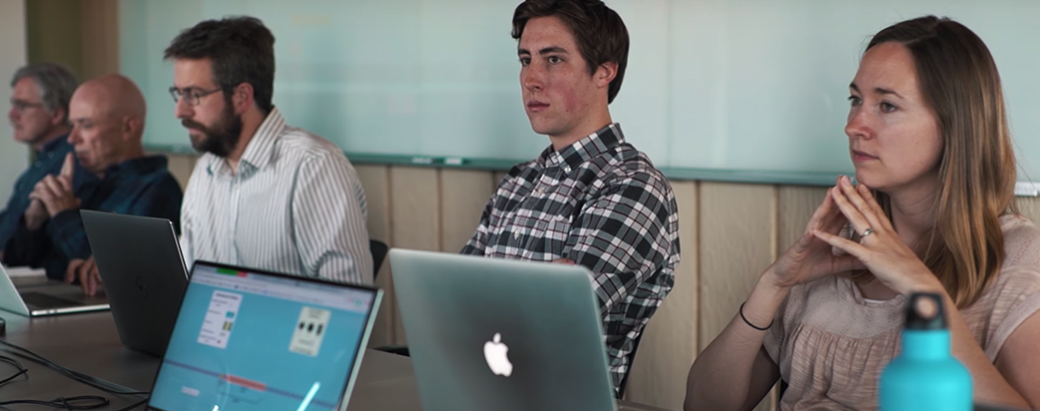
About the Project
This project is one of the 2017 WISE Awards winners.
PhET Interactive Simulations is addressing the global need to improve primary through university science and math education. The PhET project has developed over 130 research-based simulations (sims) that engage students and transform the teaching and learning of science and math, along with extensive teacher resources. These sims create animated, interactive, game-like environments in which students learn through exploration and discovery.
They emphasize connections to the real world, make the invisible visible (e.g. electrons), and include dynamic visual models that build understanding. The sims are designed to be flexible tools, that are used in multiple environments (lecture, lab, homework), in class or online, and across grade levels one through college. All sims are open educational resources, and available free (https://phet.colorado.edu ). The project has the dual goals of improving science and math education with high quality interactive simulations, and making those high quality educational tools accessible for all students.
Context and Issue
The PhET Interactive Simulations project is addressing a grand challenge that is facing nations across the world: educating the next generation of scientists, mathematicians and engineers who can develop innovative technologies to help solve today’s local and global problems and that drive economic growth — as well as developing broad science and math literacy in our increasingly technology-based society. Numerous peer-reviewed studies demonstrate that traditional K-12 and college classroom instruction and curricula in the sciences are simultaneously ineffective at motivating and interesting students in science, and at developing the deep conceptual understanding of science, the scientific process skills, and expert-views of science. Similar results are found for math. Across the world, innovations in science and technology are driving economic growth and advancing societies. Local effective STEM education is critical to recruiting, retaining, and graduating the STEM professionals needed to fulfill these jobs.
Solution and Impact
The PhET project was started in 2002 by Nobel Laureate Carl Wieman. His vision was to improve the way science is taught and learned by creating sims that were aligned with and vetted through education research and made available to all students and teachers everywhere. With its use of education research, PhET is known as a world leader in simulation design, creating intuitive, easy-to-use, exploratory environments which engage students in science and math practices, build connections to the real world, and address known student difficulties with content. Every single simulation is tested with students. In addition, the project includes innovative approaches to enable widespread uptake and use worldwide, including 1) open (CC-BY) licensing to enable free use by anyone including commercial distribution, 2) easy translation into any language by community translators, 3) offline functionality to support remote (no internet) areas, 4) a lesson sharing exchange where active teachers can support new users and exchange ideas, and 5) a highly flexible sim design that enables use in multiple environments (in activities, lectures, homework and virtual courses.
PhET sims actively engage students in the learning of science and math, and specifically address student difficulties through their design. Each sim creates an interactive game-like environment with dynamic feedback – enabling students to easily and intuitively explore and discover cause-effect relationships and make connections between real-life phenomena and the underlying science. For classrooms that lack laboratory equipment or even an internet connection, the entire PhET website can be downloaded and installed from a thumbdrive/CD to provide remote and under-resourced classrooms access to science and math learning. The project uses ongoing research and rigorous quality control testing to ensure the delivery of quality learning resources. For every sim, a detailed set of learning goals are developed and are based on common student difficulties in learning content ideas or practices. In development, every sim is tested and refined using individual student interviews to ensure that the sim interface design and feedback engages students in productive exploration — asking “what if” questions to test their ideas, and discovering and making sense of core science and math concepts.
The simulations are widely used internationally. Currently, the project sees over 80 million sim runs per year globally (with about one-third international use and a 25% annual growth rate). The simulations have been translated into 89 languages, and the full website into 40 languages. The PhET project serves as a model of excellence for innovative and effective STEM education tools – tools that grounded in education research literature and tested for engagement and learning with students – and for bringing high quality open educational resources to scale, internationally. And the project continues to innovate – with next-generation simulations that are designed for touch-or-mouse devises and built on a state-of-the-art HTML5 software solution developed by PhET; a new R&D effort to make these simulations accessible to the disabled; and a tools for our community of translators (over nearly 7000 sim translations to date).
Future Developments
Currently, PhET is pioneering new technologies to make the simulations available for students with disabilities , publishing their first accessible simulation. PhET is also pioneering a new suite of simulations that are enhanced with interoperability features – including sim customization, inter-technology control through an API, and backend data streams of interaction events and states.


